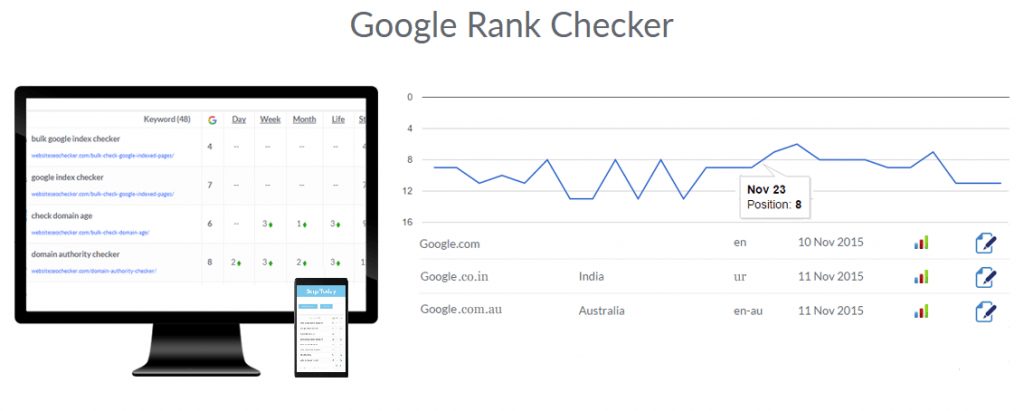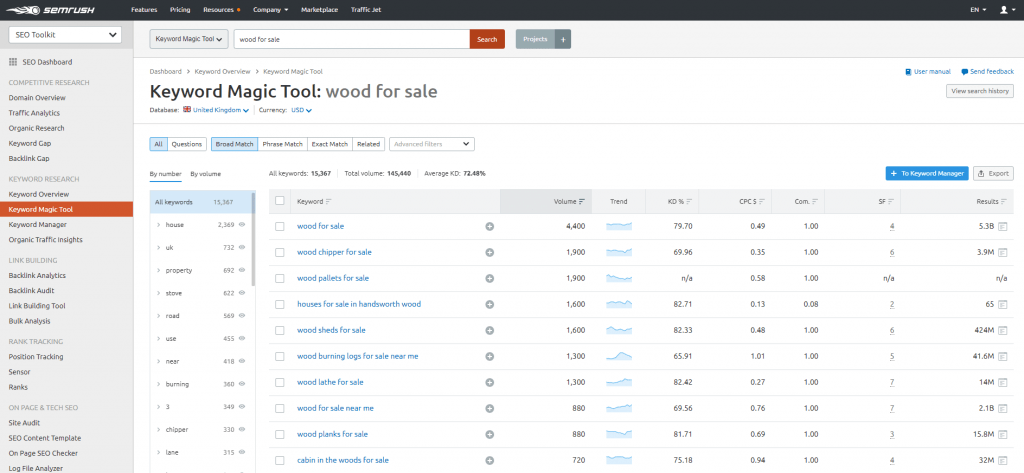The December 2025 Google Core Update Is Complete: What Does It All Mean?
When a Google core update is being rolled out, digital marketers everywhere eagerly wait to…
Whether you are new to the wonderful world of search engines, or you are long in the tooth when it comes to SEO and content optimisation, the requirement to keep yourself up to date with current Google guidelines is increasingly essential. Without this knowledge, you’ll be unable to show your high-quality content with the world. You need to sculpt this content perfectly for search engines to rank it highly.
In light of this increasingly important part of your web activity, this post goes into some detail about how you can secure the best search engine rank for your blog, website or portfolio, ensuring that every piece of content you publish helps you climb Google’s rankings to that all-important first page.
For those of us who have worked with search engines since their inception, we’ll know just how difficult it is to keep pace with Google’s changing algorithms, and the changing nature of online content.
All content published online can be found through search engines – but only the highest-ranked content makes it to Google’s first page, where web users are most likely to click on company sites and blog posts.
But how goes Google ranking work? Well, Google deploys algorithms, alongside a long and verbose set of content guidelines, to judge your website and the content that you publish. The website ranking that Google then performs is based on several criteria, including:
All of these factors feed into your SEO ranking – your Search Engine Optimisation rank. Companies must optimise this rank if they’re to draw in more traffic from the searches the web users make over time.

Thankfully, finding out how your website is doing in terms of SEO isn’t as opaque as understanding how Google’s complex algorithms work. In fact, you can use a Google rank checker – available widely online for free – to see where your website finishes for several keywords searched into Google’s search engine each day.
You would expect that your brand name would rank highly, seeing as it’s a unique keywordKeywords are the words and phrases that potential customers might search for to find your business.. But what about related keywords? You can use a rank checker to view those, too – so that you understand what key terms are being searched by those who are actively looking for your business, or businesses like it. This, in turn, will inform your SEO strategy moving forwards.
Now that you’re familiar with how Google rank checker databases work, it’s time to make your rank higher. The higher your rank, the more likely web users are to click through to your website, where they may trade with your company.
You see, you won’t just use a website rank checker to see how you’re currently performing. You’ll use it to see which keywords you ought to include in your future content. You’ll also be able to check your site ranking over time to see how your strategy is faring in the long term.
What’s absolutely fundamental, in setting up a new SEO strategy to boost your traffic, is to understand how keywords work. With a sound grasp of your target keywords, you’ll be able to use these terms and phrases every time you publish content on your site.
You’ve already got a good idea of what some of your keywords are – they’ve been listed on your Google keyword rank checker. But what about the keywords that you’re not using at the present moment in time? What about the keywords that you’re not even aware of?
You can find out how often specific keywords are typed by web users by using SEO tools online. Our SEO management services are particularly good at this – and are here to step in and help if you’re unsure of how to proceed. Nonetheless, there are a few essential tips for finding better and underused keywords to attract more web users to your site.

One tip is to use your imagination. Let’s take a small example. You’re a company selling wood for construction. Your current keywords include ‘wood for sale’ and ‘cheap wood in the UK’. But those are not the only terms that consumers will be typing to find a website and a company like yours. Those other search terms are hidden from you – and you have to imagine what they might be to compete with other brands that are using those keywords.
For instance, you might find that consumers are also typing in ‘where to buy wood in the UK’, or ‘how much is pine’. You’ve not recognised these keywords, so those who type them in aren’t going to find your website. They’ll find another website – of a competitor – who has used those keywords in their marketing materials. Their SEO performance is boosted by their use of these keywords – and yours suffers from not using them.
Another way to cut the corner on this act of creative imagination is simply to check out the ranking factors that are affecting your competitors. You may be finishing in first place in Google’s rankings for a specific keyword, but what of those that your competitors have secured?
There are several ways to check out the SEO efficiency of your competitors. You can type keywords into Google directly, to see which companies are featured on the first page. Or, you can use tools like the Moz DA Checker to analyse the keywords deployed by your competitors. Once you know these keywords, you’ll be able to begin competing with other companies for dominance in Google’s search results.

Keywords are fundamental to your SEO strategy. You’ll rank higher when you’re using keywords expertly. You’ll rank lower – or not at all – when you’ve failed to harness the power of the keywords that your target consumers are typing into Google search engine.
Your Google keyword ranking is the main data point that you’re looking to improve when you build out a new SEO strategy. When you see this climbing, you know that you’re taking into account your users experience, and using the words that best apply to the business that they’re seeking.
An SEO strategy revolves around the keywords that you decide to deploy and the content that you deploy them in. You see, you cannot just publish a page on your website with 100 new keywords listed one after the other. They need to be artfully placed in written content to pass through Google’s complex algorithms. These same algorithms will down-rank your site if you’re seen to be using keywords in an unnatural way.
The content that you produce from this point onwards must adhere to the standards set by Google in terms of how it ranks content on its search engine. Meanwhile, it’s also clear that you need to inject at least one keyword into everything you write from now on.
You’ll use SEO tools to get hold of those keywords, and you’ll use a content writer – preferably one who’s experienced in writing for SEO standards – to help you flesh out top-quality content that features those keywords.
So, back to the company that sells wood. If you’re looking to compete in a new keyword, concerning pine wood, you’ll need to write an informative and well-researched article on pine wood, its uses, and its benefits. In this article, you should link to other reputable websites, and deploy a few keywords that you’ve researched. If this article is written well, consumers will appreciate the extra knowledge they get from it – and you’ll benefit from them purchasing off your website.
Even though your search engine ranking may be high – and may even be number one – you should never be complacent. Your competitors will also be investing time, energy and cash into their SEO ranking, and they’ll be looking to steal your leading rank away from you, decreasing your traffic, and your sales, as a result.
As such, your marketing team should always be checking what’s happening in the world of SEO rankings, using Google tools to ensure that you’re dominating top spot for your most valuable keywords. If you fail to do this, your time at number one on Google’s results pages will be numbered.
Meanwhile, if you’re also able to take the battle to your competitors, using their keywords to steal a little of their market share, then you’ll be able to boost your sales and profits, reinvesting in your company and your marketing as a result.
Hopefully, after having read through this article, you’ll have come to appreciate in a new light just how important SEO is. Even the smallest businesses can benefit from finishing higher in Google’s rankings – and with the tips outlined here, you’ll be on your way to making these improvements yourself.
For those companies with little time to spend on SEO, Click Intelligence offers a rank of SEO services to help you kickstart your new digital marketing campaign. From keyword researchKeyword research helps websites unearth the best keywords to drive traffic and visibility. This research is supported by a number of powerful web-based tools, the best of which we’ve listed here. to article writing and link buildingLink building is a process of acquiring links pointing to your website. These links are obtained by creating content, participating in social media or commenting on other blogs., we’re on hand to help boost your company’s rankings on Google results pages, boosting your traffic and your sales as a result.
Outreach emailing is a traditional marketing strategy that involves sending an email to someone with whom you have no previous…
Download our free guide of how to run a successful outreach campaign.
Digital marketing is a requirement for any business that wants to entice, engage, and excite customers online. When putting together…